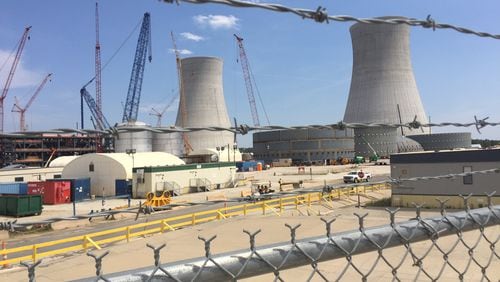If you are parent like me, you have probably been with your kids to see the latest Star Wars: The Last Jedi film that debuted recently. Believe it or not, Georgia and the Jedi Order have a lot in common, and it has something to do with nuclear energy. Here is how.
While Luke Skywalker is not the very last Jedi, he is the end of the traditional Jedi Order — at least as we have known it. And so we find ourselves in Georgia as the only remaining state building an advanced new nuclear energy plant. You probably have heard of Plant Vogtle, just south of Augusta on the Savannah River. The 3,200-acre site is Georgia’s premier nuclear power site. The existing two reactors, finished in 1987 and 1989 respectively, produce annually nearly 17 million megawatt-hours of baseload, around-the-clock, electricity and will operate another 30 to 50 years. Building on what is now inarguably a great success story, plans were launched to build an additional two new nuclear reactor units at the same site to help power Georgia into the future. And while the “dark side” is not trying to destroy us, a Westinghouse bankruptcy almost did earlier this year.
“Who is Westinghouse and why does it matter?” you may ask. Imagine me predicting today that Apple or Amazon would be bankrupt in 10 years. “Not very likely,” would be an appropriate response. So, it was stunning when Westinghouse, owned by the Japanese giant, Toshiba, filed for bankruptcy protection earlier this year and walked away from our fixed and firm construction contract, leaving Georgia’s ratepayers with $5 billion of potentially stranded investment. A proverbial Darth Vader nightmare is right!
Fast forward to this week, as I along with my colleagues had to decide to continue or cancel this massive project employing some 6,000 workers and soon to provide 800 permanent jobs in eastern Georgia. More importantly, this critical, long-lived energy infrastructure asset will provide 24/7 baseload electricity for 80 years without any carbon emissions — making it even more valuable in a carbon-constrained world that we foresee.
As an energy commissioner, I understand the energy/climate issues and the tradeoffs of the day. I drive an electric car and put solar thermal on my Winterville home. I voted to import wind energy into Georgia from Oklahoma to green our grid. I helped create a policy that has resulted in the largest cache of Department of Defense solar in the nation. Yet, I really want to finish this new nuclear plant that can trailblaze a new fleet of advanced U.S. reactors. I remember sitting in the White House and President Obama’s Climate Czar told me that the United States could not reach its clean energy goals without existing and new nuclear plants. Yet we struggle to build them.
Coal plants are being closed and the challenge of 24/7 baseload power, which is integral to renewable energy, looms heavy every day as businesses are counting on reliability. While not the responsibility of the state of Georgia, I want to help our country maintain nuclear energy technology leadership in an age when Russia and China are building dozens of reactors and preparing to export their technology around the world, thereby locking in countries in committed long-term, reciprocal trade relationships disadvantageous to U.S. interests, jobs and exports. Yet, plant Vogtle costs increase due to circumstances mostly beyond Georgia Power’s control.
So you may wonder how this movie ended. As often in public policy, a compromise was reached this week. The Commission passed my motion to approve a new cost and schedule forecast for Georgia Power to finish this massive project. At the same time, we are requiring them to share in the “pain” by reducing their overall revenue collection from current ratepayers by over $1.7 billion. And at the end of the project, we are prepared to disallow every single penny of imprudent expenditures — including schedule delays because of any mismanagement or failure to perform.
I hope and pray that our decision will help you, your children and your grandchildren have a more prosperous and clean future. Let me know what you think.
About the Author






